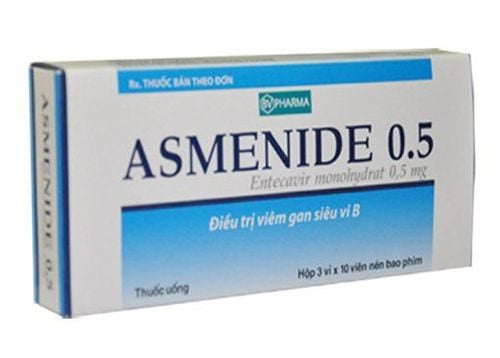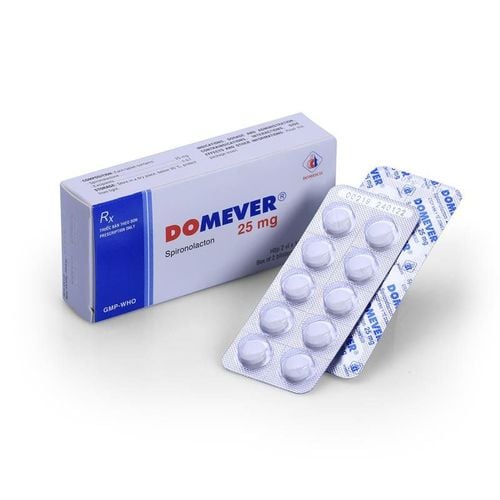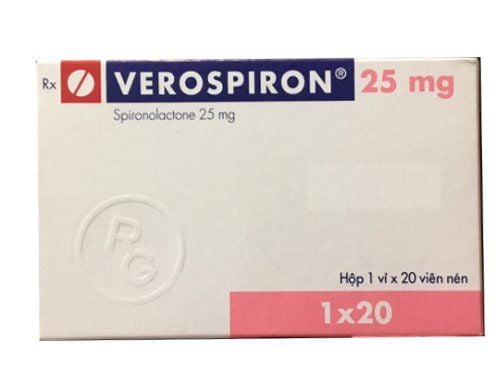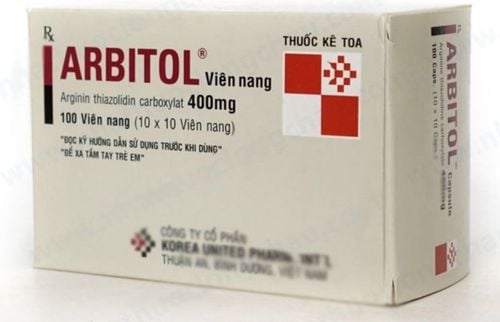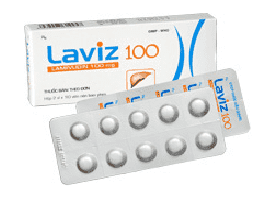This is an automatically translated article.
The article was professionally consulted by MSc Vu Van Quan - Department of General Surgery & Anesthesia - Vinmec Hai Phong International General Hospital.A common cause of cirrhosis is alcohol abuse. In addition, due to drug side effects, fatty liver, viral hepatitis. Cirrhosis is a silent and complex disease, so it cannot be taken lightly because this is the final stage of the chronic liver disease process.
1. How dangerous is decompensated cirrhosis?
Decompensated cirrhosis (cirrhosis ascites) is a disease that reduces the functioning of the liver, causing cells in the liver tissue to be damaged and scar formation, which interferes with the functioning of other cells. These include making protein, helping to fight infections, cleaning the blood, digesting food, and storing energy.
1.1 Causes of decompensated cirrhosis The cause of decompensated cirrhosis is frequent alcohol abuse. In addition, other causes such as:
Side effects of drugs Fatty liver Hepatitis B , hepatitis C Hereditary diseases (such as excess iron and cystic fibrosis) Primary biliary cirrhosis (causing obstruction of the bile ducts) ). 1.2 Subjects at high risk of cirrhosis Alcoholism Viral hepatitis Viral hepatitis Autoimmune hepatitis Chronic hepatobiliary infection.
2. Symptoms of decompensated cirrhosis

Vàng da là triệu chứng điển hình của của xơ gan
Cirrhosis usually progresses in 2 stages: compensated cirrhosis and decompensated cirrhosis. Compensated cirrhosis is when the liver can still function normally, some damage in the liver: Jaundice, indigestion, sleep disturbances, .... there are no obvious symptoms and patients often ignore is and doesn't care. However, at the stage of decompensated cirrhosis, the symptoms progressed markedly quickly, complications occurred due to damaged liver function, making treatment difficult.
Symptoms in the stage of cirrhosis include:
Jaundice, yellowing of the conjunctiva due to bilirubin accumulation Biliary obstruction, abnormally enlarged liver Increased blood pressure in the portal vein Hemorrhage Encephalopathy. The liver loses its ability to metabolize and eliminate ammonia from the body. Toxic levels gradually increase in the blood and brain, causing hepatic encephalopathy. The patient falls into a state of fatigue, narcolepsy, speech, consciousness, disorientation, and convulsions. In the final stages of hepatic encephalopathy the patient may experience convulsions, coma, and death.
Bacterial peritonitis due to ascites infection This condition is common in the group of patients with alcohol-induced decompensated cirrhosis who have severely weakened resistance. From cirrhosis with reduced resistance, cirrhosis with increased vena cava pressure along with hypotrophic status are favorable factors for bacteria to invade and cause spontaneous peritonitis.
Cirrhosis ascites - the final stage of cirrhosis Plasma and lymphatic fluid accumulate in the abdominal cavity and accumulate fluid in the abdomen, causing shortness of breath, abdominal pain, and flatulence.
In the final stage, liver cells have been severely damaged or the disease has turned into liver cancer. During the transition to the cancer stage, there may be sudden onset of pain. If the bleeding is heavy, the patient may faint or go into shock. In addition, patients with cirrhosis and ascites may develop liver edema.
Some other symptoms can be mentioned such as: kidney failure, anemia, varicose veins on the skin, nausea, diarrhea, loss of appetite, weight loss, bleeding under the skin, pale clay-like stools...
3. What is the solution to prevent decompensated cirrhosis?

Hạn chế ăn chất đạm khi có dấu hiệu phù nề
When the damage is widespread, the liver is no longer able to function normally, cirrhosis turns to the decompensated stage, the prognosis for survival is very short and depends on what complications occur.
Therefore, as soon as the initial symptoms are detected, the patient should not arbitrarily buy drugs for home use, but need an examination and examination from a doctor to have a scientific treatment regimen.
Supportive treatment is a reasonable diet and rest, including:
Limit protein intake when there are signs of edema Limit fat and have a light diet Eat a lot of energy and limit substances fluid (to control fluid accumulation in the body). For cases of water accumulation in the abdomen (ascites) or severe edema, the patient can take diuretics. Vinmec International General Hospital provides customers with standard to advanced hepatobiliary screening packages to help diagnose cirrhosis in particular and hepatobiliary diseases in general.
Vinmec is a prestigious and reliable address in the field of screening and treatment of hepatobiliary diseases, with the following outstanding advantages:
Vinmec is one of the few hospitals across the country applying elastic ultrasound liver tissue (also known as ARFI technique) to monitor liver disease, assess the degree of cirrhosis such as imaging, test kits from basic to advanced.
With the modern LOGIQ E9 ultrasound system, the powerful and flexible ultrasound imaging system meets a wide range of general examination needs. New technology using Shear Wave: This is a technology that allows qualitative and quantitative measurement of the elastic energy of the parenchyma through a color-coded table along with the value of elastic levels in Kpa pressure units.
A team of specialists with rich professional experience helps the treatment process to be highly effective, shortening the treatment time.
Professional and comprehensive examination and consultation service, civilized, polite, safe examination space, maximum sterilization.
From October 2019, Vinmec Hai Phong Hospital welcomes specialists in Gastroenterology - Liver, bile and pancreas from 108 Military Central Hospital to visit periodically for diseases of stomach, esophagus, colorectal, etc. liver, spleen, biliary tract, pancreas, anal fistula, rectal prolapse, gastrointestinal cancer screening, etc. At the request of the patient, Senior Doctor Le Van Thanh - Head of the Department of Hepatobiliary and Pancreatic Surgery – Military Central Hospital 108 will directly operate. Schedule on Saturday, surgery on Sunday so that customers can easily arrange their personal time and have more time to recover after the intervention.
Customers can directly go to Vinmec Health system nationwide to visit or contact the hotline here for support.






